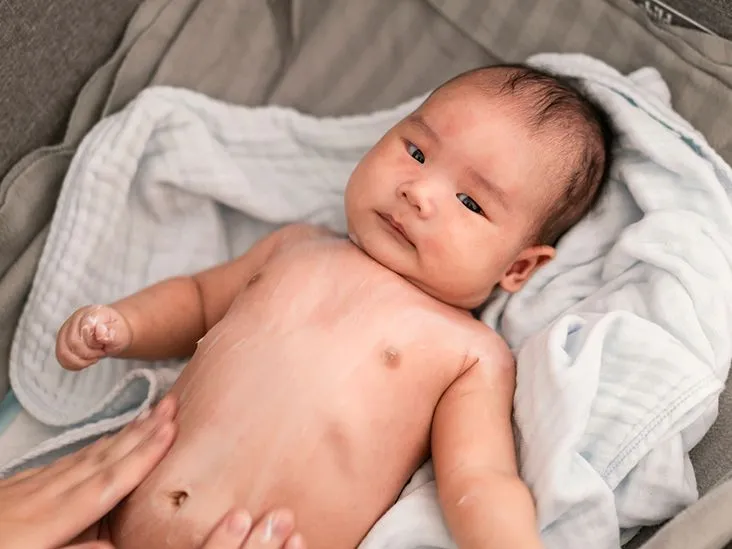Recognizing and Managing Celiac Disease in Infants

How to Identify and Treat Celiac Disease in Infants
Celiac disease is an autoimmune condition where the body mistakenly reacts to gluten—a protein found in wheat, barley, and rye. When an infant with this condition consumes gluten, the immune system damages the small intestine, leading to various digestive issues. Have you ever wondered why some babies struggle with unexplained tummy troubles? It might be worth considering if gluten is involved.
Understanding the Impact
In infants with celiac disease, eating gluten can cause symptoms like diarrhea, nausea, vomiting, bloating, and abdominal pain. Over time, this damage can lead to problems receiving essential nutrients, which might cause weight loss, anemia, and even delayed growth. Early identification is key to preventing long-term damage.
Who Is at Risk?
While anyone can develop celiac disease, certain risk factors make it more likely:
- A family history of celiac disease
- Co-existing autoimmune disorders like type 1 diabetes or thyroid issues
- Genetic syndromes such as Down syndrome, Turner syndrome, or Williams syndrome
- Selectively low IgA levels and other autoimmune conditions
Additionally, nearly all individuals with celiac disease have either the HLA DQ2 or DQ8 gene variant, even though not everyone with these genes will develop the condition.
Gluten Introduction and Breastfeeding
Parents might wonder if breastfeeding or the timing of introducing gluten affects celiac disease development. Research shows mixed results. For instance, delaying gluten until 12 months may postpone the onset of symptoms but doesn’t stop the disease from developing by age 10. Similarly, introducing gluten between 6 and 12 months is generally recommended, while both very early and significantly delayed introduction may carry risks.
Recognizing Symptoms in Infants
Celiac disease in babies usually appears after they start eating solid foods containing gluten. Early signs to watch for include:
- Persistent diarrhea or constipation accompanied by gas
- Nausea, vomiting, or bloating
- Abdominal discomfort and a distended belly
- Delayed growth or unexplained weight loss
- A reduced appetite or general fussiness
If these symptoms persist, it’s important to consult your pediatrician for proper testing and diagnosis.
Getting a Diagnosis
If you suspect your baby might have celiac disease, it’s critical to reach out to a healthcare provider. They may start with a simple blood test to check for specific antibodies and, in some cases, confirm the diagnosis with a small intestine biopsy. Remember, early detection can help prevent further intestinal damage.
What If Gluten Is Accidentally Consumed?
Accidental gluten exposure can happen, even with strict diets. If your baby encounters gluten:
- Offer comfort and keep a close eye on their symptoms
- Ensure they stay well-hydrated, possibly offering electrolyte solutions like Pedialyte if needed
- Contact your healthcare provider to discuss next steps, especially if symptoms are severe
Celiac-Friendly Meal Ideas for Babies
Feeding your baby a balanced, gluten-free diet is absolutely possible. Consider these ideas:
- Breakfast: Plain yogurt with strawberries, certified gluten-free oatmeal with nut butter and bananas, or scrambled eggs with avocado
- Lunch/Dinner: Fish with steamed broccoli and mashed sweet potato, quinoa with lentils and butternut squash, or certified gluten-free chickpea pasta with pesto
- Snacks: Yogurt paired with gluten-free cereal, almond flour muffins with carrots and apples, or fresh fruit and hummus
Always introduce new foods one at a time and watch for reactions. When in doubt, consult a pediatric dietitian or your doctor to craft the best meal plan for your little one.
The Bottom Line
Celiac disease can emerge at any stage after gluten is introduced into an infant’s diet. While early symptoms mostly affect digestion, other signs like slowed growth and irritability shouldn’t be overlooked. A quick blood test and professional guidance can make a big difference in managing this condition. With careful meal planning and a gluten-free lifestyle, your baby can still receive all the vital nutrients they need.
Just one thing to remember: if you’re ever uncertain about feeding practices or notice any unusual symptoms, don’t hesitate to reach out to a healthcare professional. Their expertise can help guide you through each step, ensuring your baby stays healthy and happy.